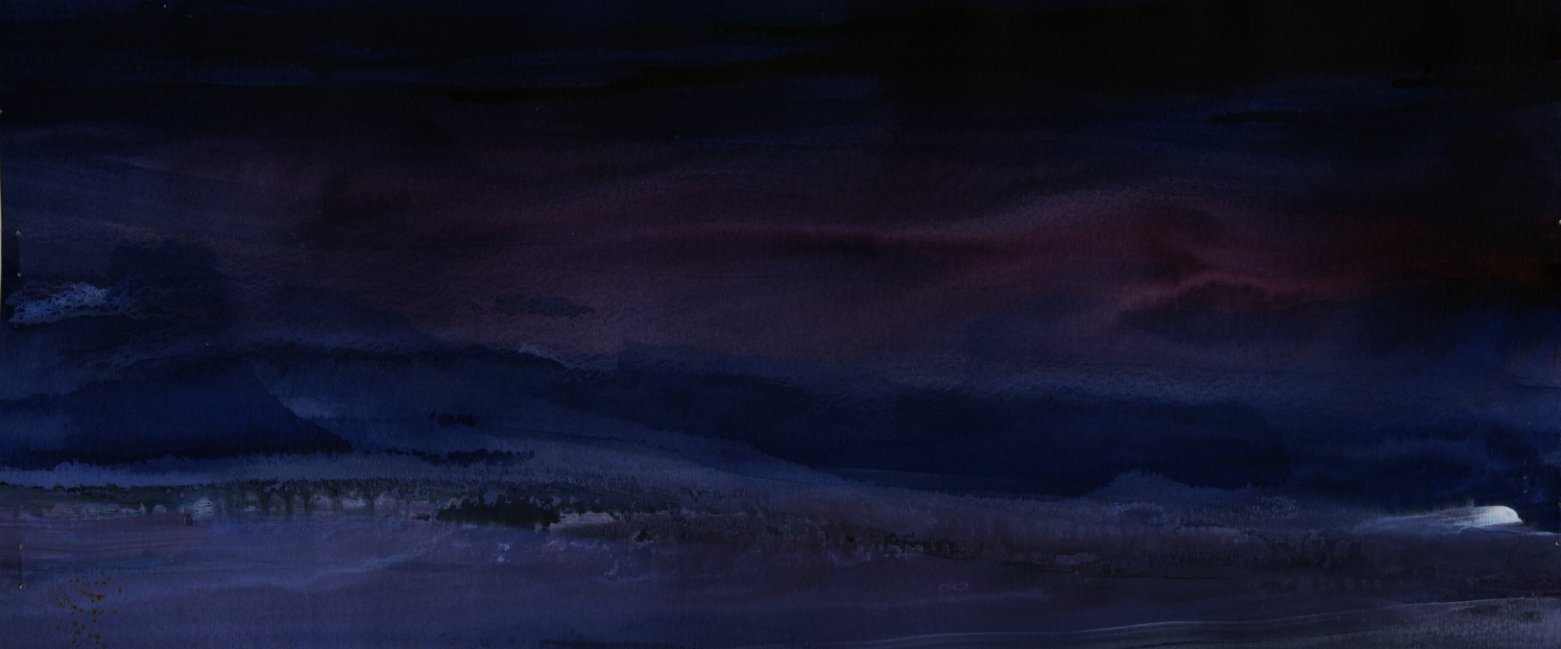
Oxbow Blue

A Pause For Beauty
One ought every day at least to hear a little song, read a good poem, see a fine picture,
and if it were possible, to speak a few reasonable words.
- Goethe
. . .
For a Dene, the true reality of time is too precious and too important to be used as a reference for insignificant things. Time meant the rhythm of the earth and human growth; the seasons, the families, the sun, and the cycle of life.
- Rene Fumoleau, Heron Dance interview.

Dene Shaman
Rene Fumoleau
The poem below by Rene Fumoleau, retired Oblate priest, offers an insight into the culture of the Dene, a subarctic Canadian indigenous tribe. It has always amazed me that they could survive for thousands of years living in that country of muskeg and twenty-hour darkness during the winter with bows and arrows and spears made of wood and stone.
For three months, when I was sixteen, I lived with the Dene near Great Slave Lake and fought fires with them. For more on my interview of Rene for Heron Dance, visit here. Here’s an excerpt:
"One older woman in Fort Good Hope was telling me stories of her life: `My husband and I,' she said, `we have always lived in the bush, hunting, travelling everywhere, fishing, trapping; and we raised five children.' She told me of her winters in the bush with her family, of travels through the mountains to hunt caribou, and summers when they made dry fish for winter, and about all the long trips they made on foot. I remarked to her: `You and your husband, you must have worked so hard all your life!'
`Oh, no,' she replied, `I told you already, we never worked, we lived in the bush all the time.' They had simply done what was to be done, and there was nobody to push them around. Everything was life. Everything was family. There was also lots of time when they didn't have a lot to do but they didn't see it as `time off.' For a Dene the true reality of time is too precious and too important to be used as a reference for insignificant things. Time meant the rhythm of the earth and human growth; the seasons, the families, the sun, and the cycle of life. They didn't break time into different chunks. They just lived. Fishing was a spiritual experience, and walking the land was a political statement. The Dene say, `White people know how to make a living, but us, we know how to live.'
Back!
In December 1976, I visited Radeli Koe (Fort Good Hope),
where I lived from 1953 to 1960, and also in 1968-1969.
It's always a joy to meet the K'ahshotine again.
Their name means Big Rabbits' People, or Hareskins.
Hares, always abundant in their territory, provided food,
and their hides, cut into strips
were woven into warm clothing and blankets.
Radeli Koe, a few kilometers from the Arctic Circle,
is known as the coldest place in Denendeh.
During my one week visit,
the thermometer stuck at minus 40 degrees,
and I drank a lot of hot tea in every house.
At the Takalay's home, Jane explained:
"We were trapping at Canoe Lake since October.
My husband and two boys came back by skidoo.
Our two small children and myself,
we flew back in a small Cessna, yesterday."
Their oldest boy, fifteen years old,
had not been mentioned, and I inquired:
"What about Eddy?"
"Him? he's coming back with our dog team.
He left three days ago, he'll be here soon."
I had travelled the Canoe Lake trail by dog team.
and remembered it was one hundred and ten miles.
While the conversation was going on,
I thought of fifteen-year-old Eddy,
travelling by himself for three days,
setting up his tent every evening at -40,
having to feed himself and the dogs,
aware that nobody was closer than fifty miles,
and that any mistake would be his last one.
As we talked, laughed, and drank tea,
dogbells rang outside near the house.
Little Ben looked through the frosted window:
"Eddy is back."
Eddy tied the dogs to their posts and walked in.
The fur around his hood sparkled with frost.
He took his parka off, dropped it onto the floor,
rubbed his mukluks one over the other,
walked to face the big woodstove,
bent over slightly, rubbed his cheeks,
stretched up, flexed his arms back and forth,
turned around, bent and stretched his legs,
turned once more, rolled and relaxed all his muscles,
inviting the heat to invade his body.
Life was going on in the house:
baby slept on the couch,
two children played on the floor,
a boy prepared a pelt stretcher,
and mother watched a pot on the stove
while conversing with me.
After a while she turned to Eddy:
"You came back?"
"Yes, I came back."
Such simple words after such a trip!
But what intense pride flowing between mother and son thinking:
"Of course my son came back, he is a man."
"Of course I came back, I am a man."
from the book of poems by Rene Fumoleau entitled Here I Sit.
Current Month Pause For Beauty Posts
September Pause For Beauty Posts
Free shipping, no sales tax on all Heron Dance orders including original paintings, prints and posters.





